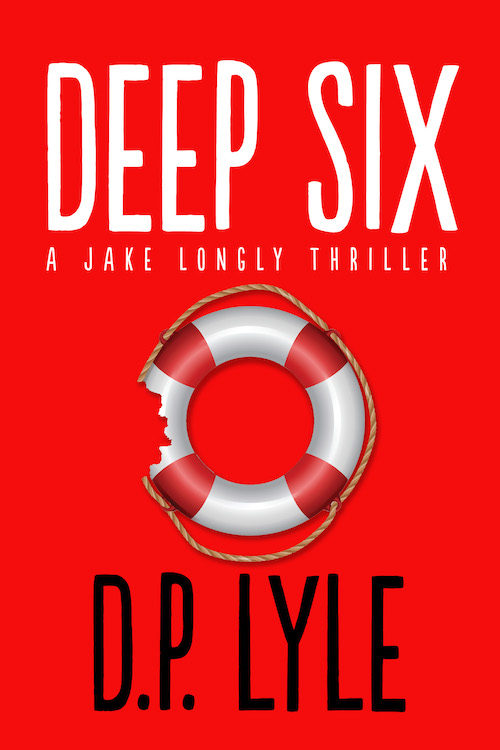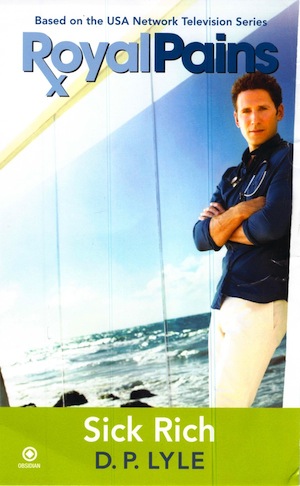Q: If a healthy adult male, late forties, were to be bitten on the palm of his hand by an Australian blue-ringed octopus (octopus maculosus), how long would it take for him to die? What would be the progression of symptoms? Assuming the forensic pathologist was unaware of the role of the octopus in the death, to what would he or she likely attribute the death?
A: The Blue-Ringed Octopus comes in two distinct species. The larger, Hapalochlaena lunulata, is approximately 8 inches in across, while the smaller, the Hapalochlaena maculosa, measures only a few inches across and weighs one ounce. The Blue-Ringed Octopus is one of the most deadly creatures in the sea. Small, dark brown to dark yellow in color, it has blue rings, which “glow” a brilliant electric blue when it is angered or disturbed. It hangs out in Australia and the Indo-Pacific area. Typically found in shallow waters and along beaches, it bites when disturbed or picked up by the unsuspecting victim.
The toxin, tetrodotoxin (TTX) is a neurotoxin. It is also found in the Puffer Fish, the California newt (genus Taricha), and in the harlequin frogs (genus Atelopus) of Central America. In the Caribbean TTX is used as Zombie Powder and in some VooDoo rituals. A single Blue-ring may possess enough toxin to kill ten adult humans.
Envenomation typically occurs when the animal bites the victim, but prolonged contact with the saliva of the Blue-ring may allow passage of the toxin through the skin.
The toxic effects are dependent upon how much venom is transferred and the size and health status of the victim. Symptoms onset quickly, usually within minutes, and progress rapidly. Most are of a neurological nature, since the TTX attacks the nerves. The symptoms include numbness, paresthesias (tingling), muscular weakness, blurred vision, nausea, vomiting, shortness of breath, slurred speech, poor coordination, loss of consciousness, and death. TTX may lead to very low blood pressure, shallow breathing, a very weak pulse, and dilated (enlarged) pupils so that the victim may appear dead before death truly sets in. If the victim survives, he may suffer brain damage from the low blood pressure and reduced breathing. This combination of effects reduces the amount of oxygen in the blood (called hypoxemia) and the amount of blood that reaches the brain. The result is anoxic encephalopathy, which is literally brain damage due to poor oxygenation.
In Zombie making (Yes, this does happen), the TTX is ingested or absorbed through the skin, leads to anoxic encephalopathy as described above, and results in a very compliant individual. It is like a chemical frontal lobotomy.
There is no antitoxin available. Treatment consists of controlling the low blood pressure and supporting breathing until the toxin wears off. This may take hours. CPR should be started immediately to improve blood circulation and supply oxygen to the blood stream. The victim should be immediately transported to the hospital where he would be placed on a ventilator and medications to increase the blood pressure would be administered. Some common intravenous medication used for this are epinephrine, Dopamine, and Dobutamine.
If the victim were an adult and if the death took place at the beach or in the water, the ME might assume the victim died of a heart attack (myocardial infarction or MI) or a cardiac arrhythmia (change in the heart’s rhythm) brought about by physical exertion. If the victim were older and died in bed or in any other resting situation, he might assume the same. Particularly if the victim had a history of heart disease or if he found evidence of significant heart disease during the autopsy. Of course, if the victim is young and otherwise healthy, the ME would be more suspicious that the death was not natural but rather at the “hand of another.”
At autopsy, the ME could rule out an MI, but not an arrhythmia since there are no autopsy findings in deaths from such cardiac electrical instability. He would suspect poisoning only if the death appeared to be something other than a tragic event or if he located the bite mark, which he could with a diligent search. If the killer spread the octopus’ saliva on the victim’s skin or put it in some ingested food, then of course no bite mark would be present. If the ME ordered them, toxicological examinations would reveal the TTX.
The key would be to avoid an autopsy in the first place. If neither a post-mortem exam nor toxicological testing were done, the ME could sign out the death as natural. Political shenanigans, love triangle, bribes, or some other intrigue could entice the coroner to “miss” the critical clues and cover the actual murder.


























Donnell Bell
August 17, 2011 at 4:21 pm
Dr. Lyle, Intriguing as always, and I always appreciate your dry sense of humor (in Zombie Making) it really does happen. But I have to ask — how exactly does a murderer go about getting octopus saliva? That would have to be one determined killer. Thank you for these fantastic posts.
LikeLike
D.P. Lyle, MD
August 17, 2011 at 4:27 pm
Maybe the killer is a marine biologist or a research toxicologist. And of course they can be bought on the black market for your home aquarium. Where there’s a will there’s a way.
LikeLike
Pj Schott
August 17, 2011 at 4:31 pm
Yikes!! Such a pretty little thing too.
LikeLike
Lisa
August 17, 2011 at 6:02 pm
I had no idea there were poisonous octopi. Thanks for this!
LikeLike
Fritz Strobl MD
August 18, 2011 at 12:19 pm
Wow, no idea. I have passed onto my US friends who live there.
LikeLike
Brenda
August 18, 2011 at 2:09 pm
Your blog is always so interesting and educational. I think I’ll stay off that beach & just watch the PBS documentaries of it.
LikeLike
Laura Mitchell
August 19, 2011 at 9:48 am
And people think I’m over reacting when I talk about the bad things an octopus can do! Another reason why I’m not a big beach person, at least in California.
LikeLike
Coco Ihle
August 19, 2011 at 1:14 pm
D.P., you always have such interesting posts! This one was especially fascinating. Thank you so much for sharing your vast knowledge with us readers/writers. I look forward to your posts.
LikeLike